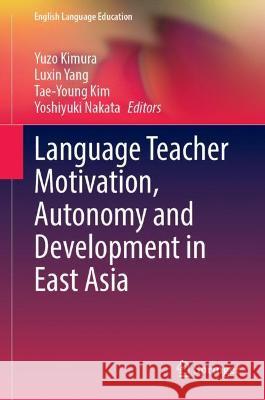Language Teacher Motivation, Autonomy and Development in East Asia » książka
topmenu
Language Teacher Motivation, Autonomy and Development in East Asia
ISBN-13: 9783030934668 / Angielski / Twarda / 2022
Language Teacher Motivation, Autonomy and Development in East Asia
ISBN-13: 9783030934668 / Angielski / Twarda / 2022
cena 603,81
(netto: 575,06 VAT: 5%)
Najniższa cena z 30 dni: 578,30
(netto: 575,06 VAT: 5%)
Najniższa cena z 30 dni: 578,30
Termin realizacji zamówienia:
ok. 22 dni roboczych.
ok. 22 dni roboczych.
Darmowa dostawa!
This volume highlights unique features of L2 teachers’ motivation, autonomy and career development in Far East counties (including Japan, South Korea and China), using diverse methodological research approaches incorporating both quantitative and qualitative paradigms. While much of current research focuses on students’ psychology, this volume looks into EFL teachers’ motivation and autonomy. Both discussions of theoretical issues of teacher motivation and autonomy and practical, classroom-based investigations are included and written to appeal to researchers, as well as applied teacher audiences.
The theoretical chapters give readers a solid grounding in the issues of interest to the field. The practical chapters offer cutting edge insights and can also serve as templates on which postgraduate and postdoctoral researchers can base future studies. This helps the book to offer a dual service to the research community, addressing both issues of theorization of research and the practice of conducting research investigations.











